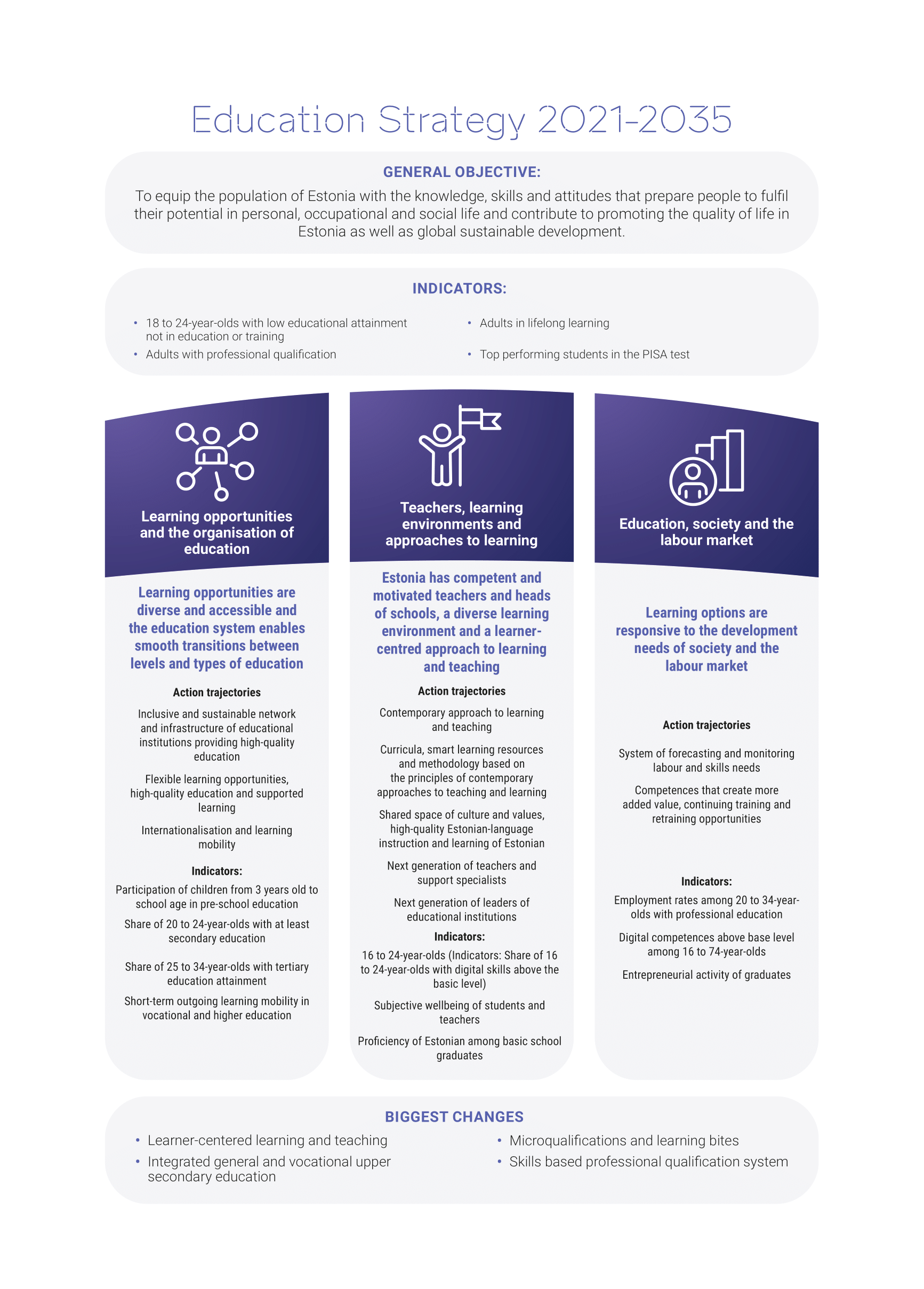This chapter provides a thematic and chronological overview of national reforms and policy developments since 2022. The web pages that follow group reforms in the following broad thematic areas:
- Early childhood education and care
- General school education
- Vocational education and training
- Higher education
- Adult education and training.
Inside each thematic area, reforms are organised chronologically. The most recent reforms are described first.
Government's key objectives for education
Estonian Education Strategy 2021–2035 (adopted in November 2021 by the Government) guides the most important developments in the area of education. It is the basis of priority setting and funding decisions, and for the development of implementation programmes that support the achievement of strategic goals.
The Education Strategy plays an important role in achieving the general objectives of the national long-term development plan ´Estonia 2035´. The strategy builds on the principle that to achieve the future goals of education in Estonia, it is necessary to maintain and further develop its strengths and to address bottlenecks.

The strategy is implemented through the 3-year implementation programmes and is monitored based on a set of indicators.
The Ministry of Education and Research leads the strategic development of the fields of education, research and development, youth, and language policy.

